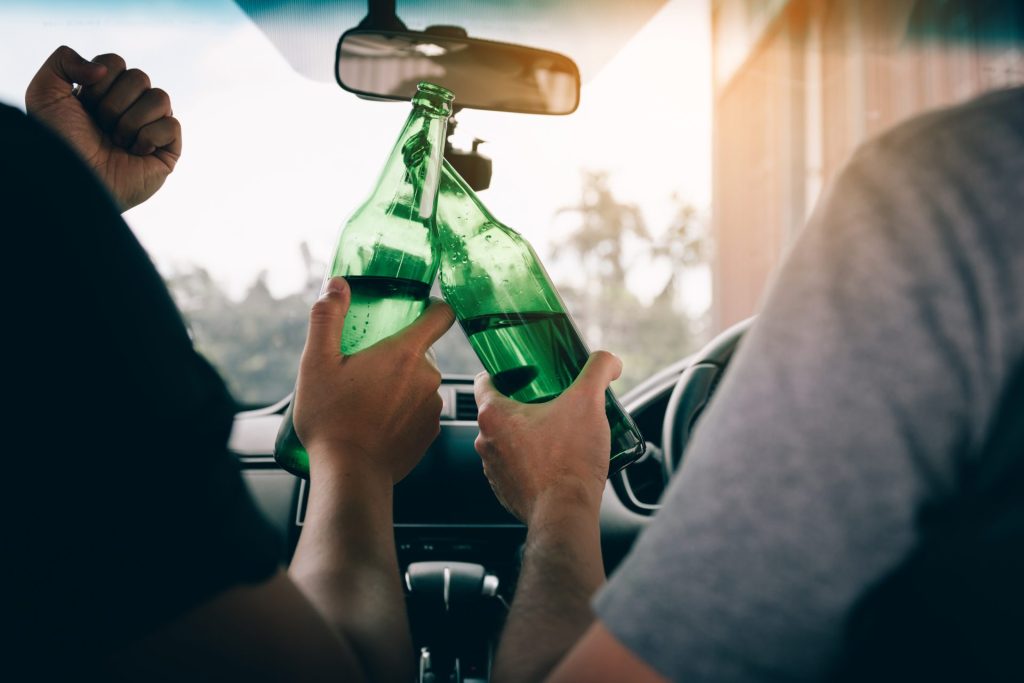What Are the Ignition Interlock Rules in Colorado?
Colorado has strict laws for DUI offenses. The penalties include criminal penalties like jail time, hefty fines, and administrative penalties like driver’s license suspensions. Courts are responsible for deciding on criminal penalties, while the Department of Revenue administers the administrative penalties.

You risk having your license suspended for up to nine months, even if you’re a first-time offender. However, you can have your driving privileges restored if you install an ignition interlock device (IID) approved by the state. Skilled Colorado Springs criminal defense lawyers provide in-depth insights into ignition interlock requirements in the state.
When Can I Be Required to Get an Interlock Device?
According to Colorado law, you will be required to have an IID installed under the following circumstances, as explained by DUI lawyers in Colorado Springs:
You Have a DUI Conviction
If you have been criminally convicted of a DUI or administratively convicted of having an excess BAC, you can be required to get an IID installed as follows:
- 1st DUI conviction or excess BAC
You can be eligible for early reinstatement with IID installation. You must not have other restrictions in effect during the offense or application. If your BAC was less than 0.15%, you must have an eight-month interlock installation.
However, you can be eligible to remove the IID after four consecutive months without failed tests or evidence of tampering. If your BAC was 0.15% or more, the requirement is to have an IID installed for two years.
- 2nd excess BAC conviction
You must install an IID regardless of when you apply to reinstate your driving privileges. You may reinstate with the IID device and other administrative requirements without a waiting period.
- 3rd or subsequent BAC conviction
Upon a 3rd or subsequent BAC conviction, you will be required to have a 2-year IID installation regardless of when you reinstate.
*Please note that if your offense date was prior to January 1, 2023, that there may be additional waiting periods to reinstate with an interlock device.
Administrative Conviction for Refusing a Chemical Test
An administrative conviction for refusing a BAC test carries an automatic two-year interlock requirement upon reinstatement, whether it’s a first or subsequent offense. You can be eligible to reinstate early after serving two months of your license revocation with IID.
Being Criminally Convicted for a 3rd or Subsequent Alcohol-Related Driving Offense
A 3rd or subsequent criminal conviction of an alcohol-related driving offense carries an automatic 2-year interlock device installation upon reinstatement.

To reinstate your license with an IID, regardless of the level of offense, you must not have any other license restrictions active at the time of reinstatement.
How Does an IID Work?
An ignition interlock device comprises many components, including an electronic chip attached to a vehicle’s ignition. The device checks whether a driver has consumed alcohol and determines whether the car can start, depending on the driver’s BAC level.
A handheld breath sensor is connected to the device, into which the driver blows to check his blood alcohol content (BAC). The sensor sends the information to the ignition chip, allowing the ignition to start if the BAC level is acceptable. If you fail the BAC test, the chip locks the ignition, and the vehicle can’t start. Some IIDs have a camera that takes a picture of you during testing.
How Do I Get an Ignition Interlock Device?
DUI convictions, some DWAI convictions, and DMV revocations can trigger IID requirements in Colorado. The device is usually part of a driver’s driving privileges reinstatement based on the revocation of their license. To get your driving privileges back, you need to:
- Apply for reinstatement of your revoked license.
- Have a state-approved provider install the IID
- Pay any required reinstatement fees.
- You may be required to complete assigned treatment programs
- Complete the necessary forms and applications for reinstatement
Experienced DUI lawyers in Colorado Springs can guide you on the steps to ensure you comply with the law when installing the IID.
Is Tampering With an IID a Crime?
Tampering with the ignition interlock device implies removing, altering, or having a non-driver provide a breath sample. You risk having your restricted driver’s license revoked if caught tampering with your ignition interlock device.

You may then be required to serve the rest of the license revocation without driving. Tampering with an IID is a class 1 misdemeanor under CRS 42-2-132.5, and a conviction carries the following penalties:
- 6-18 months in jail
- A fine of up to $5000
If you’re facing charges for tampering with your vehicle’s interlock device, consult experienced DUI lawyers in Colorado Springs to help you fight the charges.
Is Early IID Removal Possible?
Your DUI attorneys can help you apply to have your IID removed early under the following circumstances:
- You’re a first-time DUI offender
- You had a BAC of less than 0.15%
- You were at least 21 at the time of the offense
- You are a Colorado resident
- Were in full compliance with all ignition interlock requirements for four consecutive months
If you’re a repeat DUI offender, you may not be eligible for early reinstatement of your driver’s license.
An Experienced DUI Lawyer Guiding You Through the DUI Requirements
If you were convicted of a DUI or excess BAC and ordered to install an ignition interlock device, familiarize yourself with the IID laws in Colorado. Driving without the equipment or attempting to circumvent the proper functioning of the interlock device can lead to a license revocation and driving restrictions for at least one year.
Consult skilled Colorado Springs defense attorneys if you’re facing DUI charges. They can fight to have the charges dropped or penalties reduced to prevent you from being ordered to install an IID. Joyner Law is a criminal defense law firm with skilled DUI lawyers. Let us evaluate your case and provide legal assistance every step of the way. Call us at (719) 294-0566 or contact us online to schedule a FREE case assessment.









